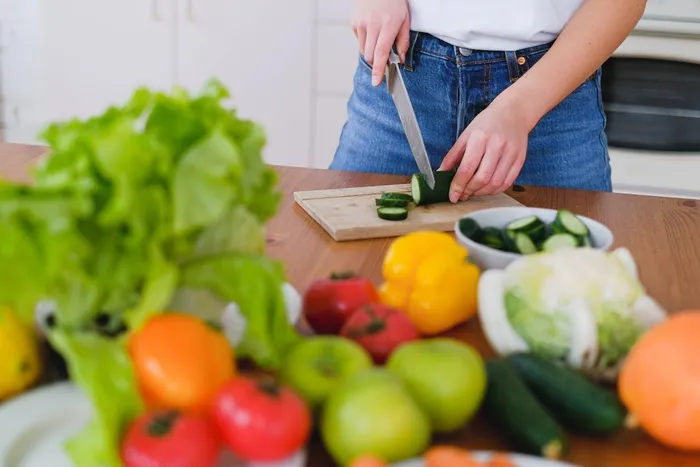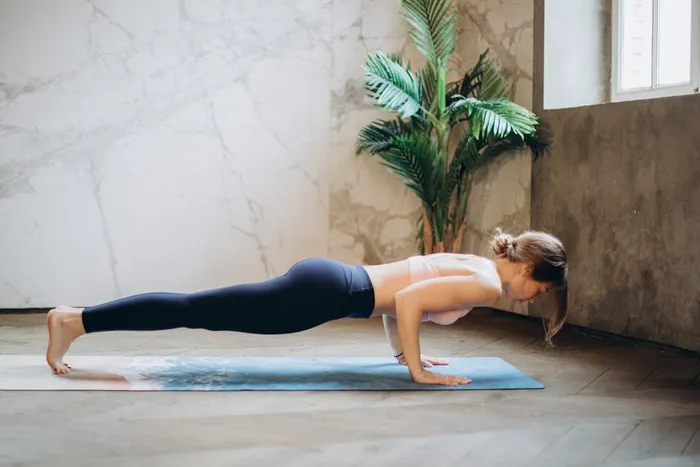
Kirsten Bell will be hosting the upcoming SAG Awards.
Image: Instagram
When you hear the word biohacking, you might picture tech billionaires hooked up to futuristic machines or people experimenting with extreme diets in Silicon Valley labs.
But biohacking isn’t just for the ultra-rich or the ultra-scientific.
In fact, it’s creeping into mainstream wellness in the simplest ways, sometimes through your favourite celebrities.
Take Kristen Bell, for instance. The actress best known for "The Good Place" and voicing the infamous "Gossip Girl" has been quietly biohacking her health in a way that’s both accessible and science-backed.
At this year’s Emmys, her co-star Justine Lupe let the secret slip: Bell doesn’t rely on weight loss injections or gruelling workouts. Instead, she uses fibre as a shield to stabilise her blood sugar.
Before eating carbs like a bowl of pasta, Bell “plugs up” her system with leafy greens, a spoonful of psyllium husk (Metamucil), or even a shot of apple cider vinegar. The logic is surprisingly simple: by eating fibre first, you slow how quickly your body absorbs glucose, preventing the blood sugar spikes and crashes that leave you tired, cranky, and reaching for snacks again.
If you're new to this approach, a simple way to start is by having a small salad or a serving of vegetables before your main meal. This easy addition can help you experience the benefits of better glucose control without a drastic change to your routine.
Registered dietitian Amy Shapiro confirms the science. “Kristen Bell isn’t wrong here,” she told "Bored Panda".
“Slowing the rise in blood sugar is crucial. Fibre acts like a buffer, helping people avoid the rollercoaster of spikes and crashes that often lead to overeating and weight gain.”And that’s the essence of biohacking: small, intentional tweaks that make your body work better for you.
What exactly is biohacking?
At its core, biohacking is about experimenting with lifestyle choices, food, exercise, sleep, and even supplements to optimise your health.
Think of it as being the CEO of your own body: you test, track, and adapt to find what works best. Some methods are high-tech (wearing glucose monitors or trying light therapy), while others are as simple as tweaking the order you eat your meals.

In light of Heart Awareness Month this September, there sits a palpable urgency to reconsider our commitment to health.
Image: Anna Shvets /Pexels
The movement has exploded in recent years because people want more control over their health without waiting for a doctor’s visit or prescription.
According to a 2022 report in "Nature Biotechnology", interest in personalised health interventions has surged globally, with biohacking practices like intermittent fasting, wearable tracking, and nootropic supplements becoming increasingly mainstream.
Heart disease remains one of the leading causes of death worldwide, including in South Africa, according to the World Health Organisation. Small lifestyle tweaks can make a big difference in heart health, and many fall squarely under the biohacking umbrella.
A 2020 study published in the "Journal of the American Heart Association" found that repeated blood sugar spikes increase inflammation and strain on blood vessels, raising the risk of heart disease. By adopting a simple fibre-first approach, you’re not just keeping hunger at bay, you’re giving your heart a layer of protection too.

Engaging in breathwork and stress reduction exercises to ease blood pressure and lessen heart strain.
Image: Elina Fairytale /Pexels
Other heart-friendly biohacks include:
Managing blood sugar with fibre before carb-heavy meals to lower your risk of insulin resistance, a major heart disease driver
Regular movement, “snacks” like brisk walks or desk stretches, improve circulation and blood pressure
Prioritising sleep quality is linked to lower heart attack risk.
Breathwork and stress reduction can lower blood pressure and reduce strain on the heart.
Stand up more: Short movement breaks lower blood pressure and improve circulation.
Track your sleep: Even free phone apps can reveal patterns that affect your mood and energy.
Drink strategically: Hydrating before meals can reduce overeating and support digestion.
Mindful caffeine use: Swapping that 3 pm coffee for green tea can improve focus without spiking stress hormones.
These aren’t extreme measures. They’re low-cost, accessible ways to “hack” your habits for a healthier self. Biohacking doesn’t mean reinventing your entire lifestyle overnight. It’s about curiosity and control, asking: What small shifts can I make today to feel better tomorrow?
For Kristen Bell, it’s fibre before pasta. For someone else, it might be a daily walk, better sleep hygiene, or learning to breathe deeper.
As heart awareness takes centre stage this September, there’s urgency in rethinking how we care for our bodies.